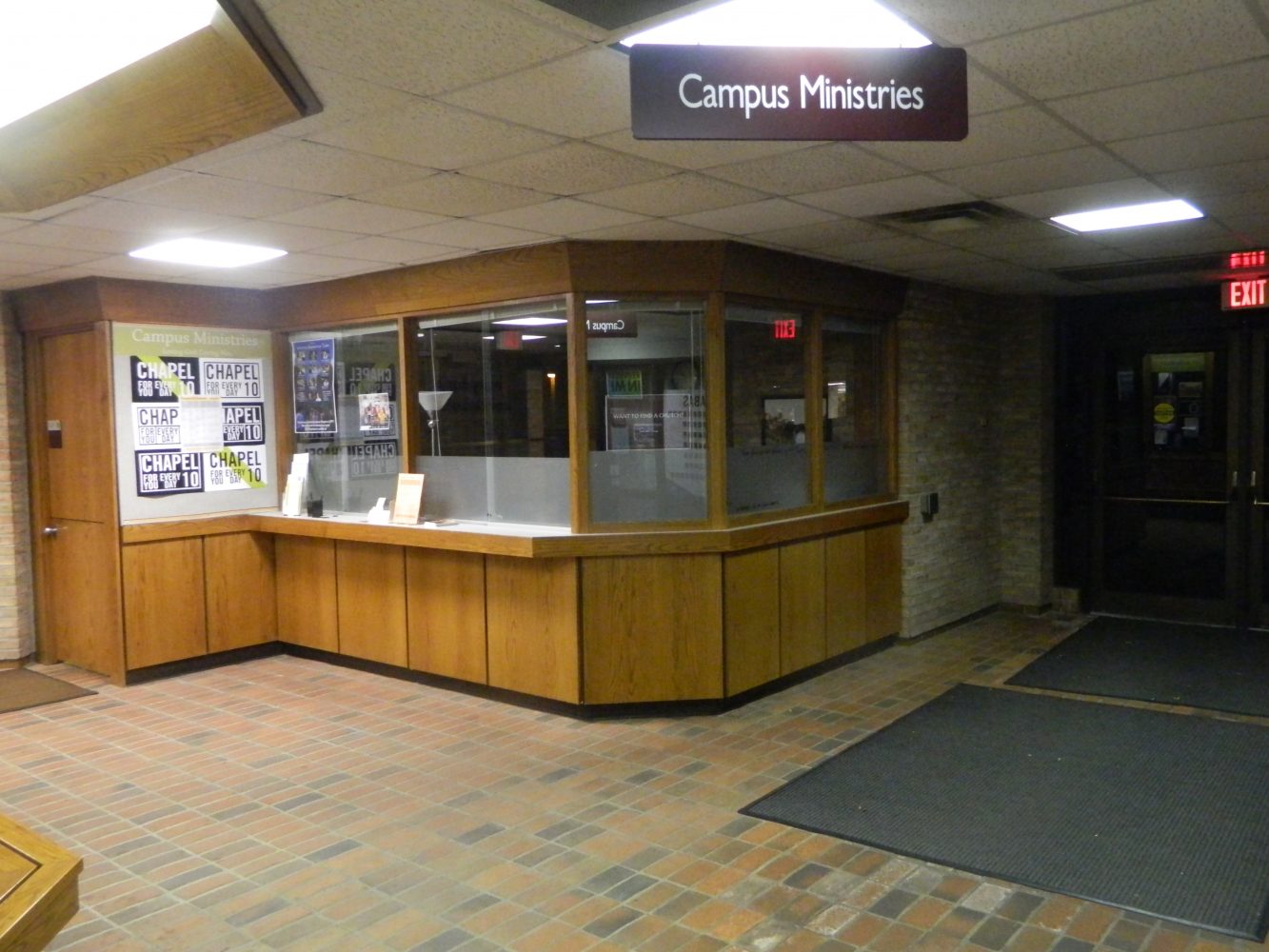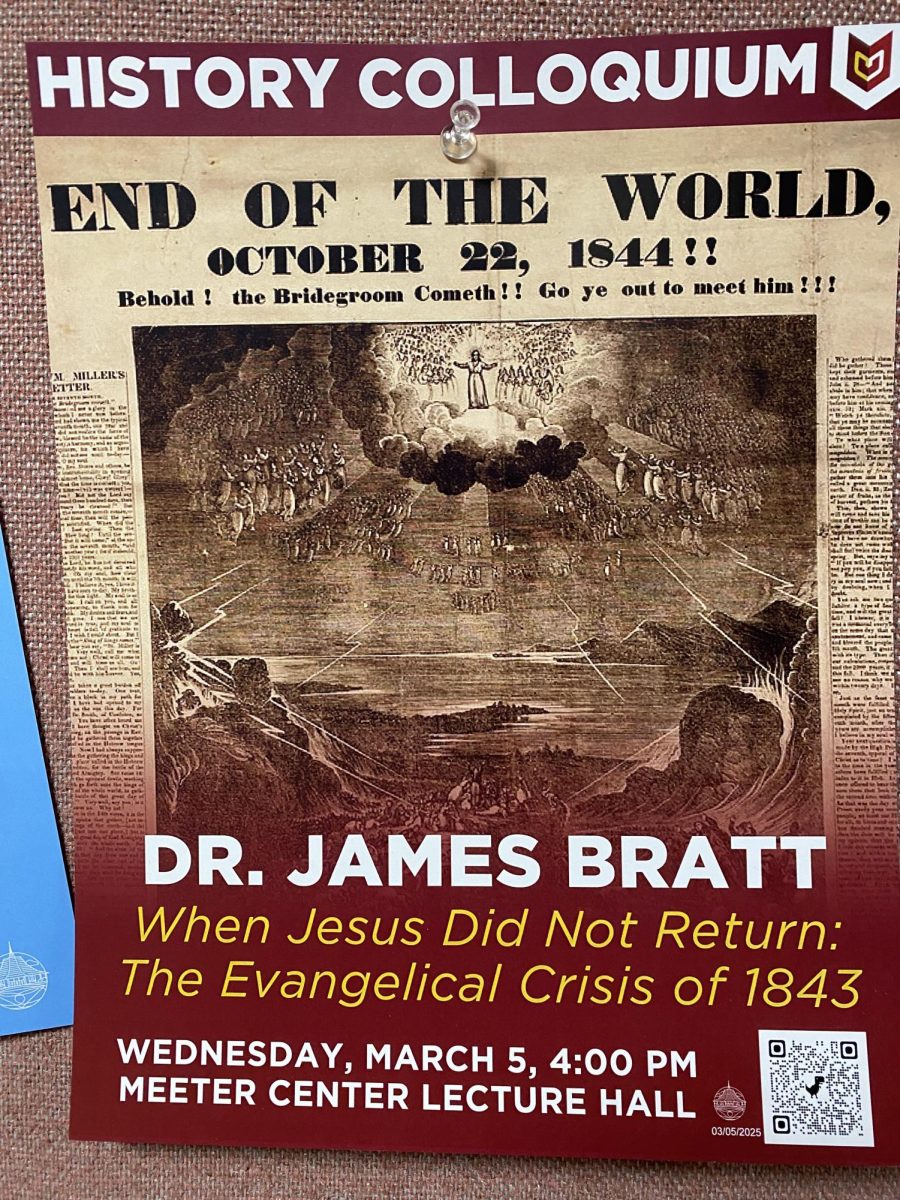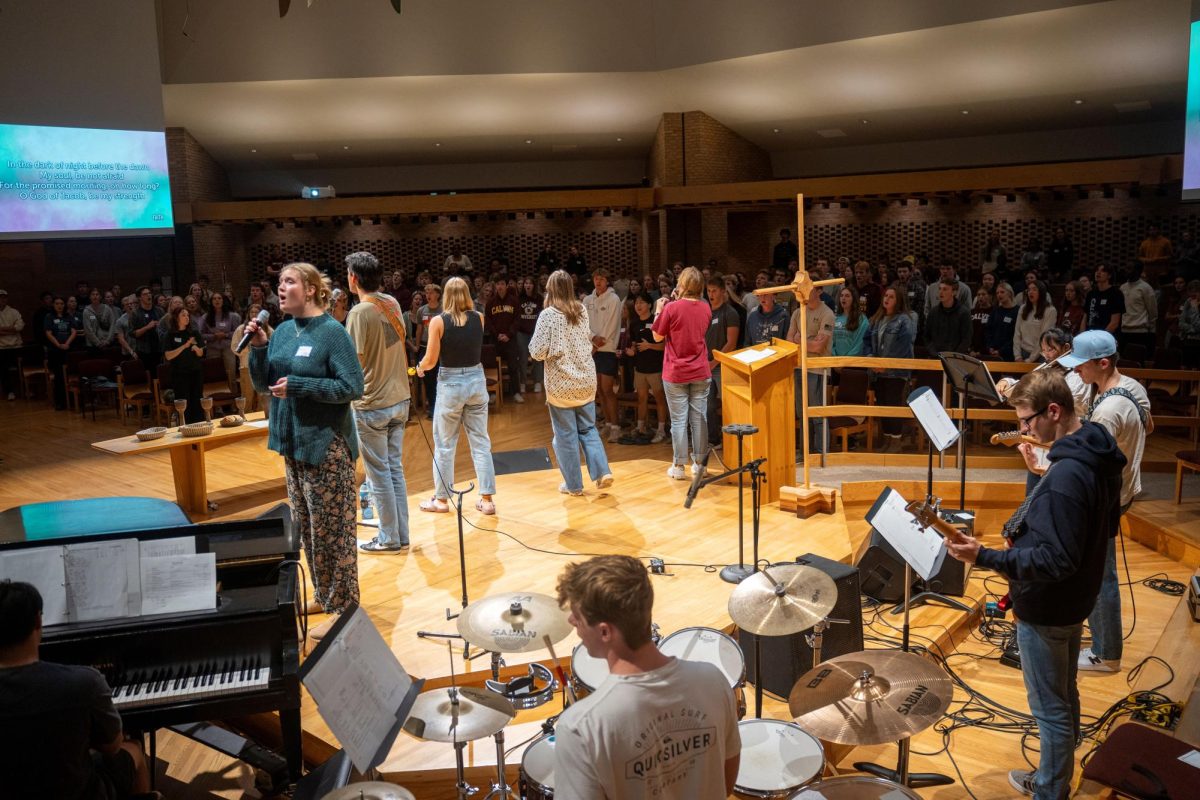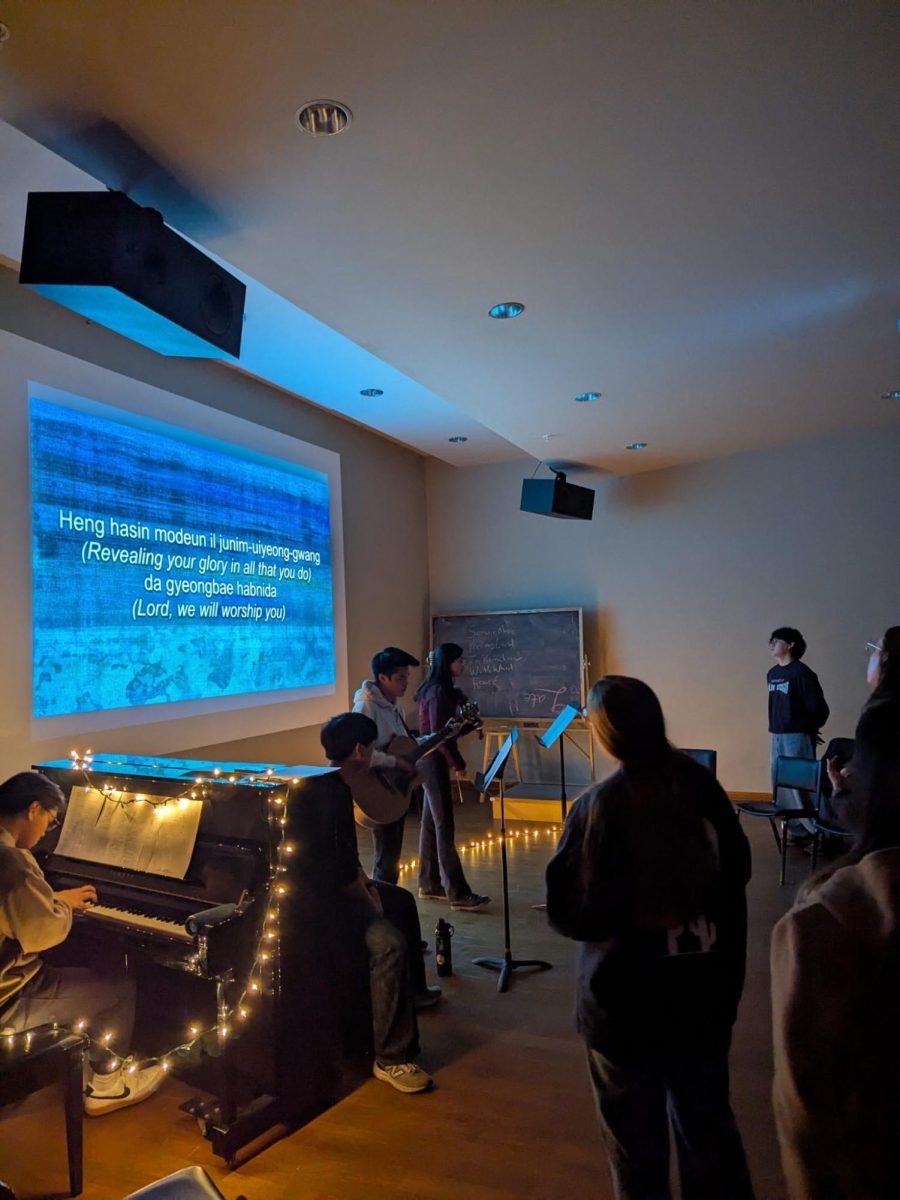While both campus ministries and the religion department center around the teaching of God’s word, the two largely differ in their aim and mission.
“I’d say they both have very different and necessary roles at Calvin College. You wouldn’t go into chapel at 10 a.m. and expect a lecture on the history of the canonization of the Bible, just like how you wouldn’t walk into your Religion 311 (Ancient Israel) and expect to learn lessons on how to better your relationship with your parents and how that will lead you to a better understanding of God,” said Eckhart Chan, a sophomore religion major.
Professor Christiana de Groot, religion department chair, agrees with this distinction.
“We primarily address our mind, whereas something like chapel largely addresses our heart commitment,” said de Groot.
Pastor Mary Hulst, Calvin’s chaplain, explains the background of how the religion department professors and campus ministries teachers fulfill different roles.
“We are pastors; we are not professors,” said Hulst. “If a religion professor is throwing the ball, we are catching it. A religion professor may stimulate interest, and then students can come talk with us,” said Hulst.
According to de Groot, those separate roles and functions add value to the community in that it allows non-Christians a welcome space to learn learn more about Christianity.
“Keeping those roles separate is a valid and important concept,” said de Groot. “You don’t have to be a believer to take our courses. I have had students who are atheists, agnostic, Muslim, Hindu and so on. They generally grow in their respect for the Christian faith.”
“The religion department’s very purpose is to train people in theology and biblical knowledge. What the receivers decide to do with that is completely up to them,” said sophomore Barnabas Nathan Carey-Craddock.
That being said, there is still overlap between the religion department and campus ministries, especially when it comes to ministry-related courses and the congregational studies minor.
“For example, there’s a class in the religion department that teaches all about Confucianism, which has little to do with campus ministries, while classes like Holy Spirit and the Church might be more related,” said senior religion major Daniel Joo.
“I don’t think there has to be a huge difference,” said Hulst. We are always open to partnership with the religion department.
While not all students of religion are required to share the Christian faith, all professors must have a PhD in a field of religion. This and the college’s requirement to be a member of the Christian Reformed Church (CRC) means all staff and faculty members of both the religion department and campus ministries share a common set of beliefs.
“I would say that there is a strong thread that connects the religion department and campus ministries. Obviously, the former is more focused on theological education while the latter works for the spiritual growth and development of students — individually and as the body of Christ,” said sophomore Chris Curia, a Barnabas in Boer-Bennink.
The career goals of students who are involved in campus ministries and the religion department vary as much as the missions of each.
“For the pastor/worship leader, of course there’s going to be overlap. For the systematic theologian, maybe not so much,” said Joo.
“A good number of religion majors here at Calvin are interested in going into some form of church ministry, which naturally leads them to be involved with campus ministries,” added Chan. “For example, a good number of religion majors serve as the Barnabi on their floors. Yet, as you probably already know, not every Barnabas on campus is a religion major. In fact, I would say the majority of students on the Barnabas team are not religion majors.”
These comparisons make for an extremely diverse group of professors, staff members and students who share a common goal of teaching and learning about the Christian faith.
“I feel as though we are on the same page as far as to how we view the Christian faith and the Bible,” said de Groot. “We see that what each other does is important.”






